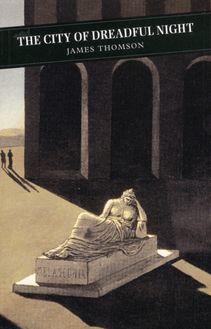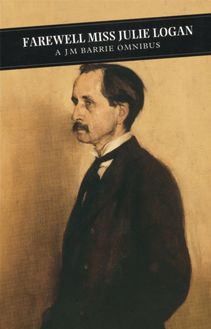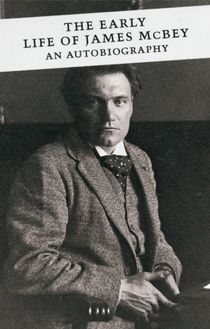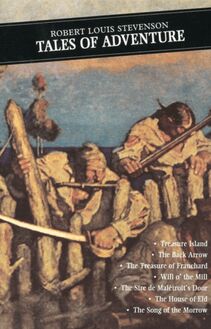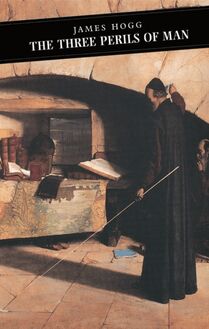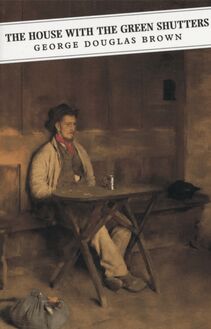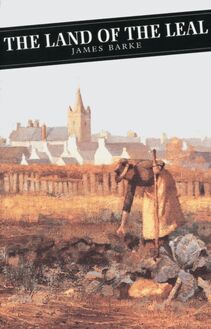Ringan Gilhaize , livre ebook
286
pages
English
Ebooks
2010
Vous pourrez modifier la taille du texte de cet ouvrage
Obtenez un accès à la bibliothèque pour le consulter en ligne En savoir plus
Découvre YouScribe en t'inscrivant gratuitement
Découvre YouScribe en t'inscrivant gratuitement
286
pages
English
Ebooks
2010
Vous pourrez modifier la taille du texte de cet ouvrage
Obtenez un accès à la bibliothèque pour le consulter en ligne En savoir plus
Publié par
Date de parution
01 juillet 2010
Nombre de lectures
3
EAN13
9781847674616
Langue
English
Publié par
Date de parution
01 juillet 2010
Nombre de lectures
3
EAN13
9781847674616
Langue
English
JOHN GALT
Ringan Gilhaize
Introduced by, Patricia J. Wilson
Contents
Introduction
RINGAN GILHAIZE
VOLUME I
VOLUME II
VOLUME III
Notes
Glossary
Maps
Introduction
Galt’s novel Ringan Gilhaize is a splendid example of realistic folk history, bringing the enormous social and religious changes which shook Scotland between 1558 and 1696 into the same frame as the story of a single family and its changing fortunes over more than three generations. The tale is told by Ringan Gilhaize (pronounced Gillies), the Covenanter grandson of old Michael Gilhaize who had lived through the Reformation. In a unique act of psychological insight Galt enters into the mind of Ringan, imaginatively repossessing the faith in which he was reared, and the veneration the child felt for a grandfather who had served so well the Protestant cause. In old Michael’s time the Reformation was supported by pious noblemen who protected him for his service and rewarded him with a farm called Quharist (‘Whaur is’t?’) in Ayrshire. But two generations later, Ringan finds himself in a harsher world, with much less influential support for those who find themselves caught up in renewed religious dispute and the struggle for spiritual and political power.
It is a hard battle, and in time Ringan will lose everything but his belief in his own mission. And if the reader cannot share Ringan’s obsession, then Galt’s skill makes sure that he never loses our sympathy. We come to know what made him the Cameronian fanatic he becomes. We have seen him change from an affectionate and deeply religious man to one who breaks the sixth commandment and kills in the belief that he is thus fulfilling the mission Providence had assigned him and delivering his native land from bondage. We are fully aware of the extent of his delusion but grant him our pity. It is he who narrates the whole story and yet long before the end of the novel the reader knows more than Ringan, and can watch his gradual and increasing alienation from those with whom he comes in contact.
Writing about Ringan in his Literary Life , Galt says that it ‘is no doubt a fiction, and as such may be called a novel, but memory does not furnish me with the knowledge of a work of the same kind’. 1 In actual fact, Galt’s own earlier works had already paved the way, for Annals of the Parish and The Provost were written in the first person, and both were studies of ironic self-revelation, as well as being examples of social history. In these books, events of world importance such as the American War of Independence, the French Revolution, and the coming of industry are registered through their effect on a small part of Ayrshire and its people, most notably the Reverend Micah Balwhidder in his parish and Provost Pawkie of Gude Town (a thinly disguised Irvine). Then again immediately preceding Ringan , Galt produced The Entail , a full three-volume novel dealing with roughly the same period as that covered by Annals and The Provost but showing what Galt calls the ‘progress of improvement’, this time on the larger town of Glasgow and its environs, thus adding another work to the group he wanted to call his ‘Tales of the West’, classified by their author as ‘theoretical histories of society’. Ringan is another in the same vein. In it Galt looks back in time to examine the beginnings and growth of that Calvinist way of thought which produced his minister, his provost, and his thriving cloth merchant, Claud Walkinshaw of The Entail . Thus it can be seen that in Ringan , Galt was using skills of which he was already a master, and materials with which he was deeply preoccupied, hoping, as he told his publisher, that his latest novel ‘is to be my best’.
In the first instance, as Galt explained in his Literary Life, Ringan Gilhaize was prompted by Sir Walter Scott’s Old Mortality , in which, not surprisingly, he had disliked Scott’s treatment of the Covenanters. Indeed, Galt had long kept a wary eye on Scott’s fiction and had made the Rev. Dr. Pringle in The Ayrshire Legatees (1821) remark of Waverley that it was ‘no so friendly to protestant principles as I could have wished’, and a character in The Steam-Boat (1822) comments that when Scott ‘put out his tale of Old Mortality, true Presbyterians conceived that he had laid an irreverent hand on the ark of our great national cause, the Covenant’. 2
Galt objected to Old Mortality on two counts: first because he thought that in it Scott ‘treated the defenders of the Presbyterian Church with too much levity, and not according to my impressions derived from the history of that time’; and secondly, Galt said that he had been ‘hugely provoked’ by the fact that Sir Walter––
… the descendant of Scott of Harden, who was fined in those days forty thousand pounds Scots for being a Presbyterian, or rather for countenancing his lady for being so, should have been so forgetful of what was due to the spirit of that epoch, as to throw it into what I felt was ridicule. ( Literary Life , I, 254)
Unlike Scott, Galt wanted to pay respectful homage to ‘the spirit of that epoch’ and admits:
I am not myself quite a disinterested person on the subject of the Covenant. … A collateral ancestor of mine, [a grand-uncle of his father] namely, John Galt of Gateside, was banished, in 1684, to Carolina, for refusing to call the affair of Bothwell Bridge a rebellion, and to renounce the Covenant … In a proclamation of Charles the Second, dated the 5th May, 1684, another ancestral relation, William Galt, of Wark, in the parish of Stewarton, was also proscribed. ( Literary Life , I, 254–55)
Galt recalled in his Autobiography 3 that he had experienced religious enthusiasm himself, for at the age of four or five, in company with many other children, he had been moved to run away with the Buchanites, a religious sect that was eventually driven out of Irvine for their charismatic teachings:
… but my mother in a state of distraction pursued and drew me back by the lug and the horn. I have not the slightest recollection of Mrs. Buchan’s heresies, – how could I? – but the scene and more than once the enthusiasm of the psalm singing has risen on my remembrance, especially in describing the Covenanters in Ringan Gilhaize. ( Autobiography I, 6–7)
Thus it is that Ringan Gilhaize conveys what Scott could not, for it shows how a man could become a Covenanter, and it claims, too, that the spirit which animated those who took part in the religious struggles of the sixteenth and seventeenth centuries was the same spirit that moved those who fought under Wallace and Bruce. In this context Galt wanted to define the special characteristics of his own people, for as he noted in his Postscript to Ringan :
The English are a justice-loving people, according to charter and statute; the Scotch are a wrong-resenting race, according to right and feeling: and the character of liberty among them takes its aspect from that peculiarity.
It is in Ringan Gilhaize that Galt illustrates what the Scots understand by liberty, going beyond matters of Catholic or Protestant doctrine to deal with the nature of democracy itself. In the situation that obtained in 1558 Galt saw that the authority of rulers and church had become arbitrary and oppressive. A powerful and corrupt Church supported by a foreign and autocratic Queen Regent is shown to be ignoring the higher law which should bind rulers and ruled alike. Infringement of that higher law by those in authority was bound to provoke the resistance of the oppressed, just as when, more than two centuries earlier, the nation had risen under Wallace to oppose foreign domination in the struggle for national independence. This was the spirit in which the Covenanters sought once more to rouse the nation against Charles II, the mansworn king, and Archbishop Sharp, the apostate prelate.
Galt appended to Ringan a translation of the Remonstrance that the Scots sent to the Pope in 1320 because he thought, as Magna Carta illustrated the English attitude to authority, the Remonstrance illustrated the Scottish. It warned the Pope against encouraging Edward of England to turn greedy eyes on Scotland, who now had her own king. To him the Scots swore to be loyal but only for as long as he did not attempt to subvert his own and their rights. If he did, they would not hesitate to expel him as an enemy.
The liberty which alone the Scots had fought for and would not lose but with their lives was that same liberty which Galt showed the Lords of the Congregation defending. What they were exercising in the Reformation era was the divine right to resist the arbitrary imposition of authority by a Church and a Queen Regent grown arrogant in the abuse of their power. But by the seventeenth century, when Charles II failed to honour the Covenant and sought to meddle with the Scottish Kirk, the nobles no longer resisted Erastian encroachment. Even the strength of the gentry was ‘sookit awa’ by fines’ to make them conform to Charles’s demands. But liberty was not lost, for people of Ringan’s degree, who now bore the burden of persecution and suffering, so resented their wrongs that they were roused, even without the protection of noble leaders, to preserve their birthright of the divine right of resistance. Galt sees passive obedience in the face of oppression as abhorrent to the Scot, for whom eternal vigilance was ever the proper price of liberty.
In Ringan Gilhaize Galt deals with just such a man of vigilance, a man who comes to feel that he is the instrument Providence has chosen for a great mission. Ringan’s whole heritage led him to believe that some great task was in store for him. His grandfather foresaw it for the child. His father confirmed it, and at the age of fifty-eight Ringan comes to see his sufferings and the loss of wife and home and family as God’s way of moulding him into the instrument that is to bring down the Stuarts and liberate his country. To this
